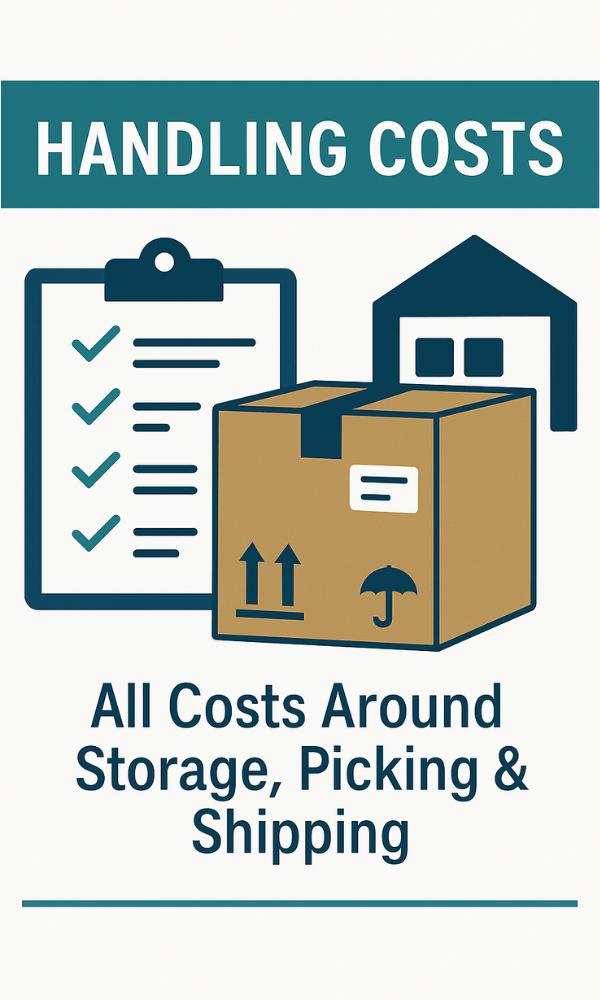Handling costs describe all costs associated with the physical movement of goods within the logistics chain. They include all work steps and operational processes that are necessary to process products from receipt of goods to delivery to the customer. Handling costs play a central role, particularly in warehouse logistics, fulfillment centers and shipping — both from an operational and business perspective.

Depending on the provider, business model and contract design, the components of handling costs may vary. In principle, however, the following services are among the typical cost components:
Some service providers charge additional fees for special handling, such as dangerous goods, temperature-sensitive goods or individual packaging solutions.
In practice, handling costs directly influence the calculation and profitability of a product. Especially in e-commerce, where margins are often narrowly calculated and competition density is high, uncontrolled handling costs can lead to significant losses. For small and medium-sized enterprises (SMEs) in particular, a transparent cost structure is crucial in order to remain competitive in the long term.
Hidden Handling costs in fulfillment offers can also mean that supposedly cheap service providers are more expensive at second glance. It is therefore important to analyse all relevant cost items in advance and to include them in pricing.
Handling costs are a central part of total logistical costs. If you understand them, analyse them in a targeted manner and actively manage them, you can not only reduce costs, but also make processes more efficient and scalable.